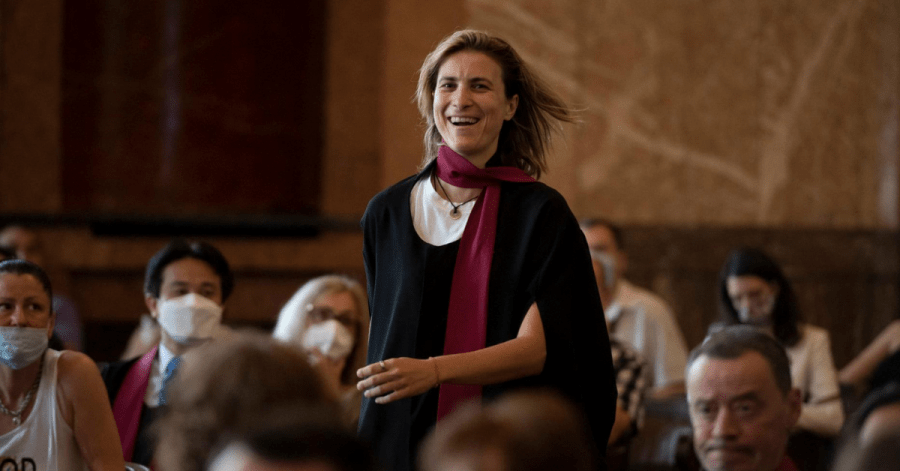Bulgaria is the second fastest-growing fintech ecosystem in the world and the first most developed in Southeast Europe according to the 2021 Global Fintech Rankings (GFR). The country was ranked 39th in the global report, moving 17 positions up for one year. The continuing development of local fintech companies has been recognized and now to fulfill their potential for global scaling they need to invest in developing the young fintech masters of Bulgaria.
With the goal to educate and integrate a critical mass of highly qualified fintech specialists, the Faculty of Economics and Business Administration (FEBA) at Sofia University and The Bulgarian Fintech Association (BFA) join forces for the second year in a row to launch the Finance, Investments, and Fintech Master’s degree program.
Public-private partnership in fintech education
The program which was FEBA’s most popular Master’s degree last year will again focus on educating the students about the practice and theory behind the development of fintech products and services. Georgi Penev, Director of the Bulgarian Fintech Association, highlighted the positive feedback of the students who graduated last year’s program. According to a survey among the graduates, 71% responded that they would recommend the Master’s program to a friend.
In the course of the 3 or 4 semesters depending on personal preferences, they will also meet with more than 15 pioneers of the local fintech ecosystem. Some of the lectures will be given by representatives from Paynetics, Phyre, myPOS, Nexo, Klear, Iuvo Group, Paysera, and Reloyalty. Interested students and professionals can apply for the program until the 10th of September 2021. FEBA and BFA will provide students with the opportunity to put their knowledge into practice by organizing the second From Zero to Fintech Hackaton. The goal is to help young professionals develop the skills needed for creating sustainable fintech solutions and enable the best teams to continue working on their projects after the end of the hackathon.
The program and the curriculum
The Master’s degree of FEBA and BFA is created for bachelor graduates and young professionals who want to improve their skills and knowledge to be able to better analyze the latest developments in the financial industry. It is recommended that the applicants possess a Bachelor’s diploma in either Economics or Business Management. If they do not, they should attend 4 additional economic classes.
The modern curriculum will consist of 7 modules which will include theory, real-life case studies, and conferences, with the goal to help the students transition from the classroom to a career in the local fintech sector. Starting with an introductory module on the rise of fintechs, which will be followed by a module on the Creative disruption that is reshaping the banking and payment industry, the program will cover a wide spectrum of topics. These will range from discussions about the regulations in fintech innovations, the megatrends in finance such as blockchain, AI, and machine learning, as well as about the future of banking and finance. At the end of the program, the students will be expected to submit a course project or participate in the Zero to Fintech hackathon.
Fintech and E-banking meets Blockchain and Crypto
As part of the Master’s degree in Finance, Investments, and Fintech, a 45-teaching-hours Fintech and E-banking course will help the students understand how technology is transforming financial services across Europe and learn how to address the future challenges in the industry. Through the course, which will take place on workdays after 18 PM, students will have the opportunity to attend lectures given by specialists from the Bulgarian Fintech Association. The Fintech and E-banking course will be guided by Deyan Radev, PhD, who will step into the role of a head tutor. On the other hand, some of the industry lecturers will be Kosta Kantchev, co-founder of Nexo, Ivaylo Ivanov, CEO of the P2P lending company Iuvo Group, and Gergana Stoichkova, Investment Associate at Eleven Venture, who will help the students with insights about what it takes to start and develop a fintech startup in SEE.
In addition to this course, for the first time this year, the program will offer a new Blockchain and Crypto course for the tech-savvy young financial professionals. The course, which will be taught by industry leaders from the private sector with the support of the BFA, will focus on explaining how cryptocurrencies work on a technical level.







